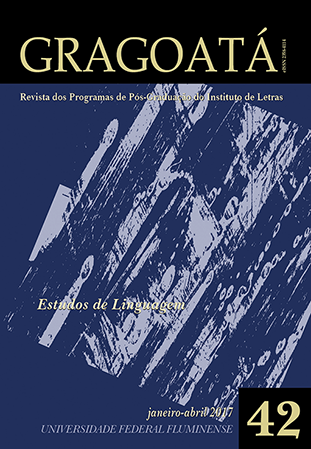<i>Ethnicity in motion?</i> German language islands in Brazil and Russia
DOI:
https://doi.org/10.22409/gragoata.v22i42.33462Keywords:
Language islands. Language contact. Language change. Language revitalization.Abstract
Today, German language islands in Russia and Brazil are on the way to language shift. On this way, the varieties of these communities display certain features of decomposition and simplification in terms of morphology. Regular and irregular morphology, however, are developing differently: while case reduction is the main characteristic of regular noun inflection, in personal pronouns case distinctions are maintained. Results are presented from a research project about language change in case morphology of German language islands with 125 speakers living in close contact to the majority populations in Brazil and Ruguage obsolescence as from language emergence which has been the subject of linguistic research in the past. Through its comparative perspective, it seems possible to accoussia. The core idea of the project is the assumption that we can learn as well from lannt for internally or externally induced linguistic change. Language decay is apparently not just disorder, not amorphous, but somehow structured. Certain lexical classes are more subject to reduction than others, and some residual features retain morphological “core” functions (in terms of case semantics). Language change is accelerated in times of blurring sociolinguistic differences and fading linguistic norms as an implication of losing ethnic boundaries. The recent co-officialization of minority languages in Brazil might slow down these processes. In a transcultural approach, teaching of Pomeranian as minority language (alongside the national language) could stabilize the local linguistic community, building a bridge to the High German standard language, and even to English as a lingua franca of international communication.
Downloads
Downloads
Published
How to Cite
Issue
Section
License
Authors who publish in Gragoatá agree to the following terms:
The authors retain the rights and give the journal the right to the first publication, simultaneously subject to a Creative Commons license CC-BY-NC 4.0, which allows sharing by third parties with due mention to the author and the first publication by Gragoatá.
Authors may enter into additional and separate contractual arrangements for the non-exclusive distribution of the published version of the work (for example, posting it in an institutional repository or publishing it in a book), with recognition of its initial publication in Gragoatá.

Gragoatá is licensed under a Creative Commons - Attribution-NonCommercial 4.0 International.














